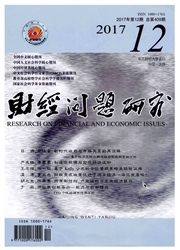

 中文摘要:
中文摘要:
商业银行退出是我国在完成金融机构市场化竞争过程中将必然出现的情况。考虑到利率市场化已基本完成,允许民营资本兴办银行等政策也已出台,存款保险制度已经建立,相应的退出机制目前迫切需要构建,相关的处置流程需要完善设计。通过比较研究美国和印度的情况,笔者发现,在银行退出机制的构建中,应健全完善的法律法规、确立"超权力"监管主持机构、明确退出机制的"成本最小化"处置原则和处置流程等。
 英文摘要:
英文摘要:
Commercial bank exits will inevitably happen while the Chinese financial system reaches complete market competition. However, the establishment of the exit path of commercial banks is underdeveloped. Given consideration to the current situation as the interest rate liberalization is completed, legislations passed to allow for the organizing of private capitalized banks, deposit insurance agencies established, it is urgently necessary to develop the exit path for commercial banks. The procedures of how-to-handle distressed banks need to be designed. Based upon comparative study of the corresponding materials and cases in US and India, this paper concludes that in developing the exit path, three objectives need to be addressed: completing the laws and regulations, designating a "super power" supervising and regulating agency, confirming the strategic principles and procedures of the handling of bank exits under the idea of "minimum cost".
 同期刊论文项目
同期刊论文项目
 同项目期刊论文
同项目期刊论文
 期刊信息
期刊信息
